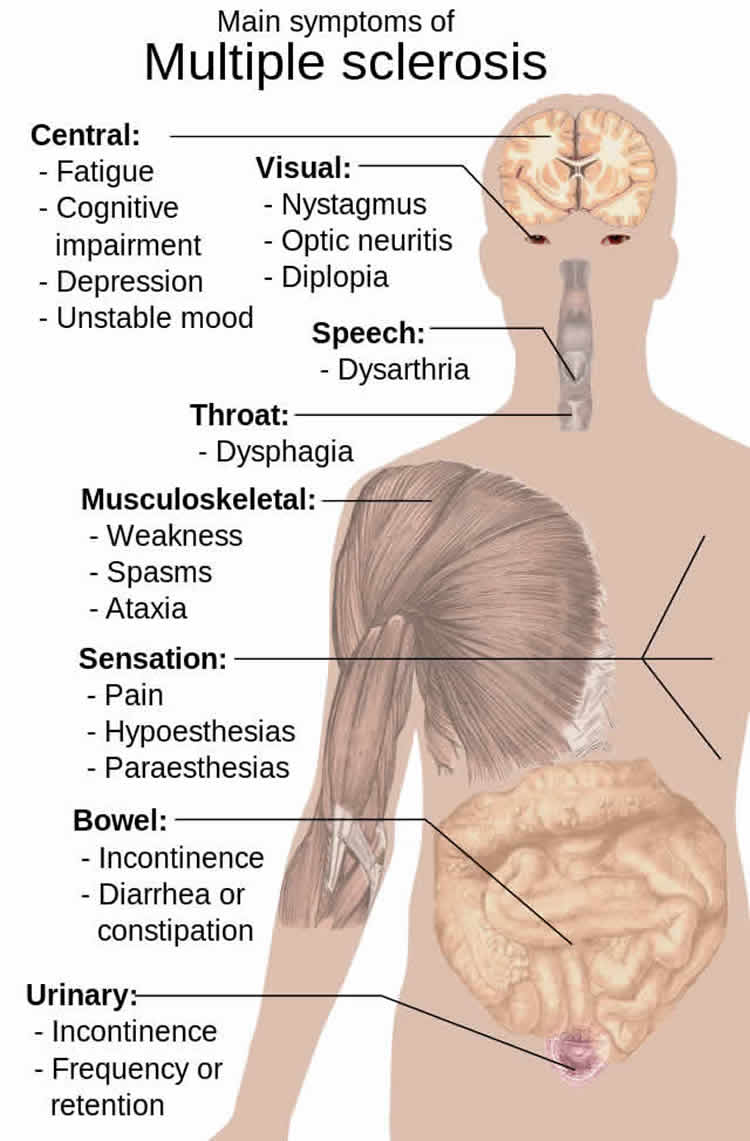Children of mothers with vitamin D deficiency during early pregnancy appeared to be at greater risk for multiple sclerosis (MS) in adulthood, according to an article published online by JAMA Neurology.
While elevated levels of vitamin D have been associated with a decreased risk of MS in adulthood, some previous research also has suggested that vitamin D exposure in utero may be a risk factor for MS in later life.
Kassandra L. Munger, Sc.D., of the Harvard T.H. Chan School of Public Health, Boston, and coauthors examined whether serum 25-hydroxyvitamin D (25[OH]D) levels in early pregnancy were associated with the risk of MS in children.

The authors identified 193 individuals (163 of them female) with a diagnosis of MS whose mothers were part of the Finnish Maternity Cohort and matched 176 case patients with 326 control participants for comparison.
The majority of maternal blood samples (70 percent) to measure 25(OH)D levels had been collected during the first trimester and the average maternal vitamin D levels were in the insufficient vitamin D range.
The risk of MS as an adult was 90 percent higher in children of mothers who were vitamin-D deficient (25(OH)D levels less than 12.02 ng/mL) compared with the children of mothers who were not vitamin D deficient, according to the results.
The authors note that two prior studies examining the association between 25(OH)D levels in pregnancy/early life did not find an association with future MS risk in children. In the current study, the authors note a few limitations, including that maternal 25(OH)D levels during pregnancy are not a direct measure of the 25(OH)D levels to which the developing fetus is exposed.
The study concludes that “while our results suggest that vitamin D deficiency during pregnancy increases MS risk in the offspring, our study does not provide any information as to whether there is a dose-response effect with increasing levels of 25(OH)D sufficiency. Similar studies in populations with a wider distribution of 25(OH)D are needed.”
Funding: “The study was made possible by biobanking efforts in Finland as part of the Finnish Maternity Cohort (FMC). When the FMC was established, it was not intended to create a resource for MS research, but its existence has created a powerful tool for understanding complex biology and disease,” writes Benjamin M. Greenberg, M.D., M.H.S., of the University of Texas Southwestern, Dallas, in a related editorial.
Source: Todd Datz – JAMA Networks
Image Credit: The image is in the public domain.
Original Research: Full open access research for “Vitamin D Status During Pregnancy and Risk of Multiple Sclerosis in Offspring of Women in the Finnish Maternity Cohort” by Kassandra L. Munger, ScD; Julia Åivo, MD; Kira Hongell, MD; Merja Soilu-Hänninen, MD; Heljä-Marja Surcel, PhD; and Alberto Ascherio, MD, DrPH in JAMA Neurology. Published online March 7 2016 doi:10.1001/jamaneurol.2015.4800
Abstract
Vitamin D Status During Pregnancy and Risk of Multiple Sclerosis in Offspring of Women in the Finnish Maternity Cohort
Importance Vitamin D has been associated with a decreased risk of multiple sclerosis (MS) in adulthood; however, some, but not all, previous studies have suggested that in utero vitamin D exposure may be a risk factor for MS later in life.
Objective To examine whether serum 25-hydroxyvitamin D (25[OH]D) levels in early pregnancy are associated with risk of MS in offspring.
Design, Setting, and Participants Prospective, nested case-control study in the Finnish Maternity Cohort conducted in May 2011. We identified 193 individuals with a diagnosis of MS before December 31, 2009, whose mothers are in the Finnish Maternity Cohort and had an available serum sample from the pregnancy with the affected child. We matched 176 cases with 326 controls on region of birth in Finland, date of maternal serum sample collection, date of mother’s birth, and date of child’s birth.
Main Outcomes and Measures Maternal serum 25(OH)D levels were measured using a chemiluminescence assay. The risk of MS among offspring and association with maternal 25(OH)D levels were the main outcomes. Conditional logistic regression was used and further adjusted for sex of the child, gestational age at the time of sample collection, and season of sample collection to estimate the relative risks and 95% CIs.
Results Of the 193 cases in the study, 163 were female. Of the 331 controls in the study, 218 were female. Seventy percent of serum samples were collected during the first trimester of pregnancy. The mean (SD) maternal vitamin D levels were in the insufficient vitamin D range, but higher in maternal control than case samples (15.02 [6.41] ng/mL vs 13.86 [5.49] ng/mL [to convert to nanomoles per liter, multiply by 2.496]). Maternal vitamin D deficiency (25[OH]D levels
Conclusions and Relevance Insufficient maternal 25(OH)D during pregnancy may increase the risk of MS in offspring.
“Vitamin D Status During Pregnancy and Risk of Multiple Sclerosis in Offspring of Women in the Finnish Maternity Cohort” by Kassandra L. Munger, ScD; Julia Åivo, MD; Kira Hongell, MD; Merja Soilu-Hänninen, MD; Heljä-Marja Surcel, PhD; and Alberto Ascherio, MD, DrPH in JAMA Neurology. Published online March 7 2016 doi:10.1001/jamaneurol.2015.4800






